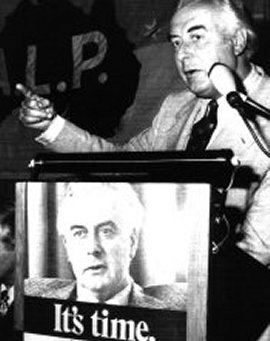Australia
For people to people solidarity with Vietnam

By Peter Boyle
September 1, 2009 -- There has been a lot of media coverage in Australia around the August 31 return of the remains of the last two Australian armed forces personnel – Canberra bomber pilots – who were missing in action in the Vietnam War. But none of the articles put this in the context of the death and damage inflicted on the Vietnamese people by the United States and its ally Australia.
Operating as part of the US Air Force's 35th Tactical Fighter Wing, Royal Australian Air Force (RAAF) Canberra bombers flew 6% of the wing's sorties but inflicted 16% of the damage. Overall, 11,963 sorties were flown by the Canberra bombers in Vietnam and 76,389 bombs were dropped. Two Canberra bombers were lost in the process.
Total Australian military casualties in the Vietnam War were 521 killed and 2398 wounded, but the numerous high-altitude bombing raids carried out by Australia's Canberra bombers alone would have inflicted much higher casualties.
Industrial action for peace: The Communist Party of Australia and antiwar activity before 1960
The Flame, August 2009 -- Green Left Weekly's Arabic-language supplement
With the help of Socialist Alliance members in the growing Sudanese community in Australia, Green Left Weekly
Green Left Weekly -- Support people's power media!
Green Left Weekly is a people's power alternative media project. It is Australia's leading socialist publication, with unmatched international analysis. The internet gives it a global reach, but unfortunately that doesn't pay the bills! Many of its readers and writers are brought together from many corners of the world. The level or support and respect that Green Left Weekly has generated over the years was on show with the many messages of congratulations it received during the celebrations of the paper's 800th issue. Please help write for, distribute and support it!
Australia: ABC TV's `Foreign Correspondent' program censors Venezuela's majority

By the Australia-Venezuela Solidarity Network
August 12, 2009 -- The Australian Broadcasting Corporation's Foreign Correspondent current affairs TV program screened on August 11, titled “Hugo Chavez: Total Control” did nothing to shore up the ABC’s reputation for well-informed, accurate reporting. Eric Campbell's report from Venezuela was riddled with inaccuracies, half-truths and transparent biases that need to be corrected.
The program’s main message –- that President Hugo Chavez is “the dominator… aiming for total control” in Venezuela -– is the stock-standard propaganda being peddled by a mainstream media that refuses to recognise or reflect the voices of the poor majority in Venezuela.
What “evidence” does Foreign Correspondent present for Chavez’s supposed megalomania?
Public ownership of coal industry needed to move to 100% renewable energy and retain jobs


July 29, 2009 -- For Pacific islanders, climate change is not a threat looming somewhere in the future. Rising sea levels and unpredictable weather are having devastating effects right now. Climate change has already forced some communities to leave their traditional homes.Simon Butler spoke to two climate change activists from the Pacific about their campaign for immediate cuts to global greenhouse emissions.
Pelenise Alofa Pilitati is the chairperson of the Church Education Directors' Association in Kiribati. Reverend Tafue Lusama is the chairperson of the Tuvalu Climate Action Network. They are on an Australian speaking tour through July and August, which is co-sponsored by Greenpeace and Oxfam. For details of the tour go to http://www.greenpeace.org/australia/news-and-events/events/pacificvoicestour-300609.
* * *
Simon Butler: What are you hoping to achieve with your speaking tour?
Melbourne, August 28-29: Latin America Solidarity Conference 2009
Australia: Global warming and the ‘Big Dry’— What prospects for the Murray-Darling river system?

By Renfrey Clarke
July 20, 2009 -- From desert-fringe villages and drowning atolls, global warming is predicted before long to set climate refugees on the move. But arguably, the first climate refugees to reach Australia’s major cities are arriving already. And the places from which they have come are not exotic — rural towns like Mildura, Renmark and Griffith in Australia’s south-east.
In settlements throughout the Murray-Darling, residents are quietly deciding the irrigation-based economy has no future. For many orchardists and viticulturalists, allocations of water in recent years have been too low to keep plantings alive.
When barely a trickle is coming down the rivers, farmers are concluding it’s best to sell the next-to-meaningless water rights, accept a government exit package, bulldoze the trees and vines, and walk away.
Unprecedented drought
The record of the Australian Labor Party: high hopes and big disappointments


By Soubhi Iskander, Stuart Munckton and Emma Murphy
July 4, 2009 -- Green Left Weekly
Grapel is a researcher with the Australian/Israel and Jewish Affairs Council.
Grapel alleges that the Flame, “unbeknown to its English readers”, also “supports terrorist groups and promotes violence”, and through the Flame, GLW is “openly promoting extremism”.
Jean Hale, 1912-2009 -- Farewell to a `most revered activist'
By Sylvia Hale
June 13, 2009 -- Jean Hale (nee Heathcote) was born on July 29, 1912, in Brisbane. Her grandfather, Wyndham Selfe Heathcote, was an Anglican clergyman who opposed the Boer War. His opposition to the Anglican Church's social policies and his opinions, such as this from one of his essays -– “The death of Jesus, as a social reformer using direct action, has been transmuted into the death of a God dying for the world” –- found him at loggerheads with the church and resulted in his leaving to become a Unitarian minister. His public speaking skills, which Jean inherited, were considerable. In October 1916 the Woman Voter reported that, “despite the large seating capacity of the building, thousands of people were turned away” from a debate between himself and Adela Pankhurst (the youngest member of the British suffragist family).